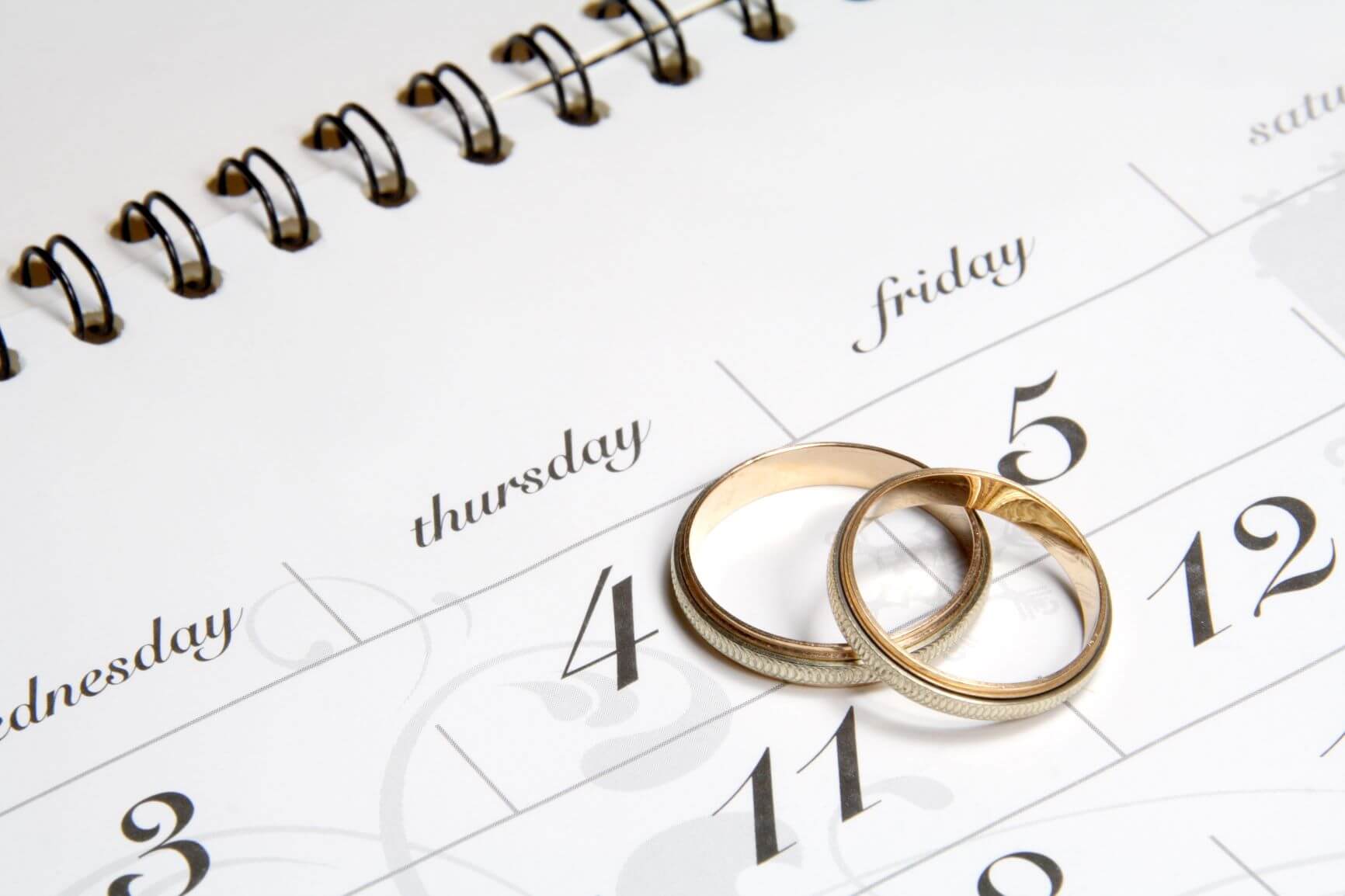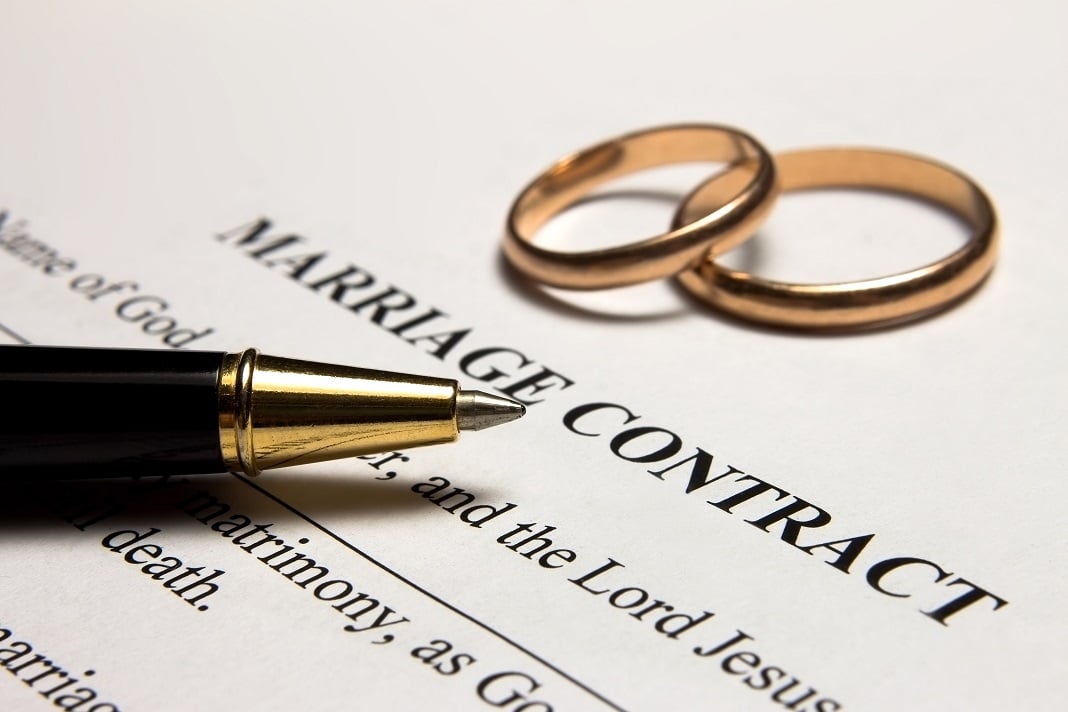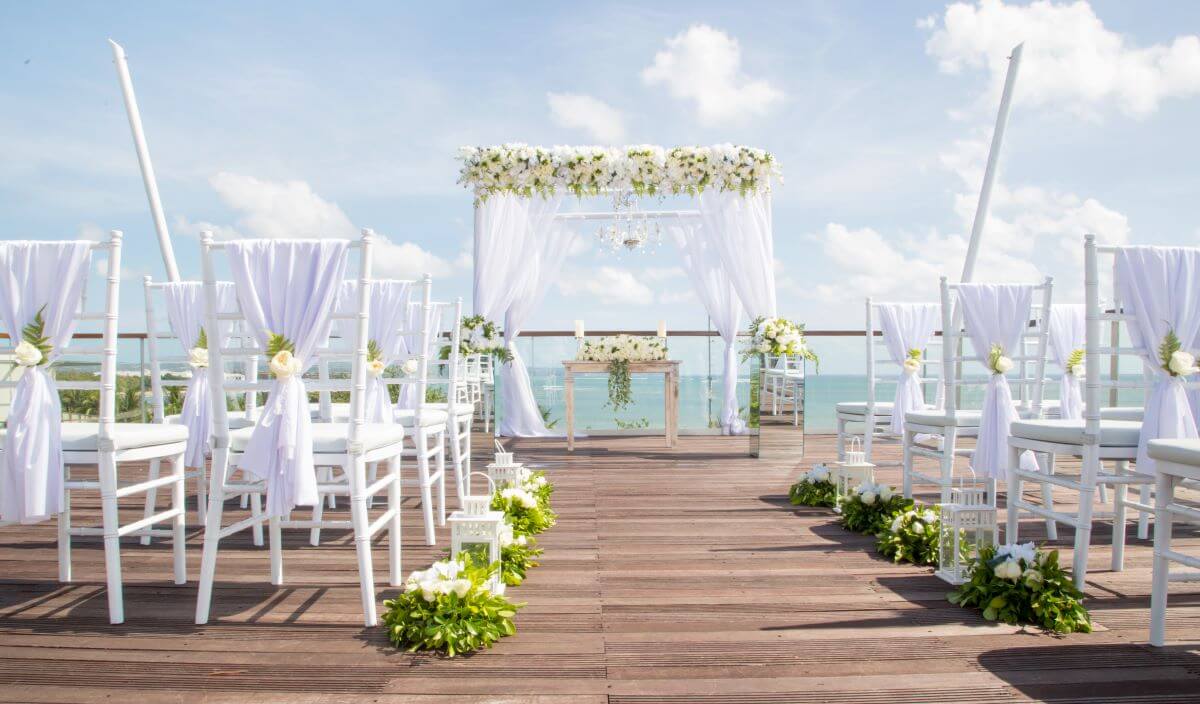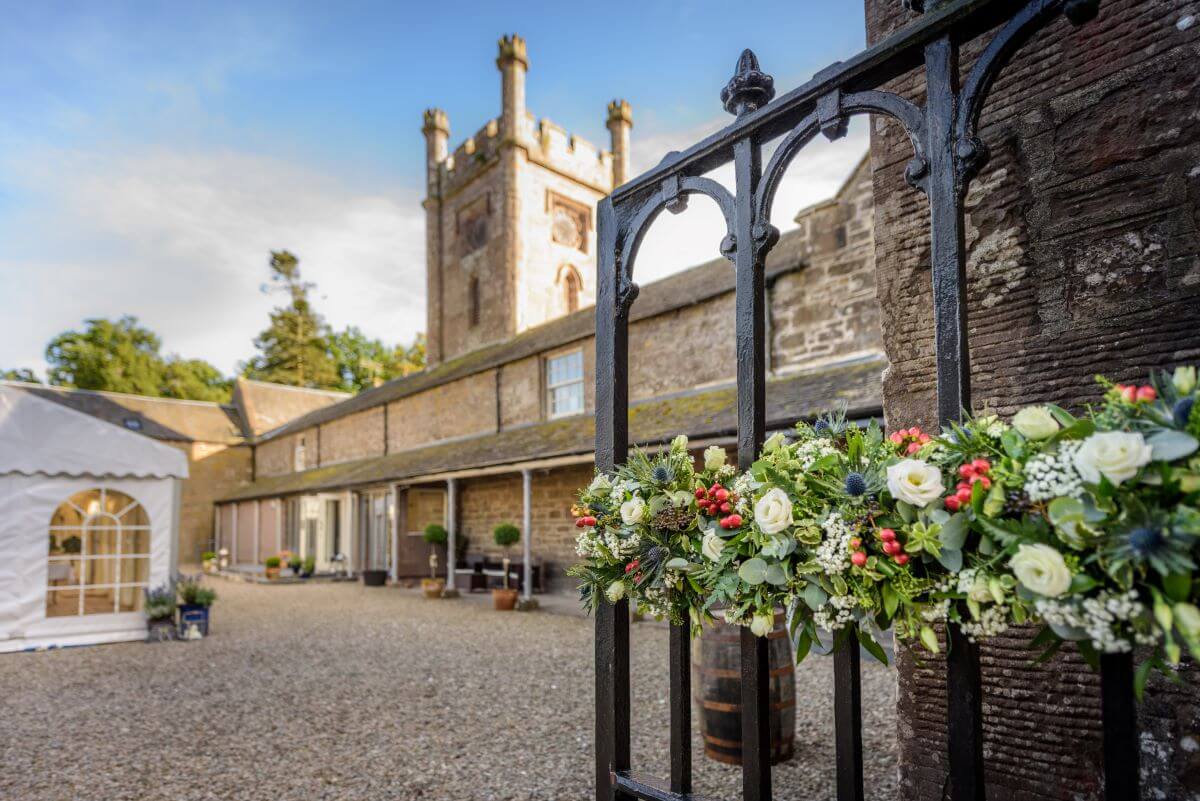After the whirlwind of the proposal, your head is most likely spinning with possibilities. In the beginning, just enjoy being engaged and spreading the good news. The first month is full of happiness, so take the first two weeks to just have fun with it and relax. If friends and family start hounding you for details (Have you set a date? Where will the wedding take place?), tell them you’re just relishing the moment for the time being and will get back to them soon with the essentials.
After you take some time to catch your breath, it’s time to get down to the exciting details of the big day that lies ahead. Before anything is set in stone, sit down as a couple and talk through the basics that will formulate your overall wedding vision. Below is a list of the major components to consider before setting the date.
Size
The first step is to determine the size of your wedding. Decide how big or small a wedding you want to have. This will ultimately determine your guest list (or work the other way around by making a rough list of all the must-invite friends and family).
Budget
Before any planning is done, you must first have an honest discussion about the budget. Take a look at your finances and figure out how much you are going to put toward the wedding. If you plan to keep costs low, the guest list is the first place to look for possible cuts, as each attendee represents an amount for food and decor. Just keep one important thing in mind; no one should ever go into debt and that’s no way to start a new marriage.
Wedding Style
Think about what your overall wedding style will be — this may be the idea you’ve had in your head for years or it may come from a conversation you and your fiancé have together after you’re engaged. Consider whether you’re more formal or casual. Do you envision a fancy sit-down dinner, a cocktail reception or a relaxed brunch with fun tasting stations? When it comes time to look at venues, this will help decide which location will best suit the flow of your party.
Location
You don’t have to have an exact venue in mind quite yet, but narrow down the options to the type of place you see yourself tying the knot. Do you want a local hometown wedding or a destination spectacle? Are you planning on a city wedding that’s chic and formal or would you prefer to get married on a rural country venue?
Ceremony and Reception Venues
Once you have decided on the general location, consider the venues that may be available. Think about whether you want to have the ceremony and reception in the same location or if the wedding will be divided into two separate venues (for instance, if you plan on having a religious ceremony in a house of worship). Keep in mind that it’s easier for guests if you have all the events in one spot.
Wedding Date
Take a look at your calendars to determine what time of year will work best for you and your families, and also think about what season you see yourself getting married in. Consider your location and season, and if perhaps a destination wedding is a good option.
In many areas of the country, autumn is now the most popular time of year to get married. Winter is also a romantic time to get married and with the 2021 wedding season pushed back is expected to be popular. Or perhaps you picture a spring or summer affair. Narrowing down the options to a season will help set the rest of your vision in motion.
Parents
If you would like to involve your parents in the planning process or think they may want to contribute funds, have an honest conversation with them in the beginning so that everyone is on the same page. You may want to go to them with a general plan in your head (say, a summer wedding in a barn with 150 guests) to give them an idea of your vision and so that you can begin to formulate the budget and guest list together.
Remember that your proud parents may also have their own vision for your wedding, which may or may not mesh with yours. Try to reach a compromise in which everyone will be content, but remember that this is YOUR wedding. If your father was planning on inviting all of his colleagues but you want to keep the guest list short, stress the importance of a small wedding.
Wedding Planner
When you’re newly engaged, it’s a great time to start thinking about whether working with a pro makes sense for you. A wedding planner can help you narrow down the choices in the beginning, whether it’s suggesting venues and vendors, helping you set a budget and a wedding timeline or brainstorming creative ideas.



